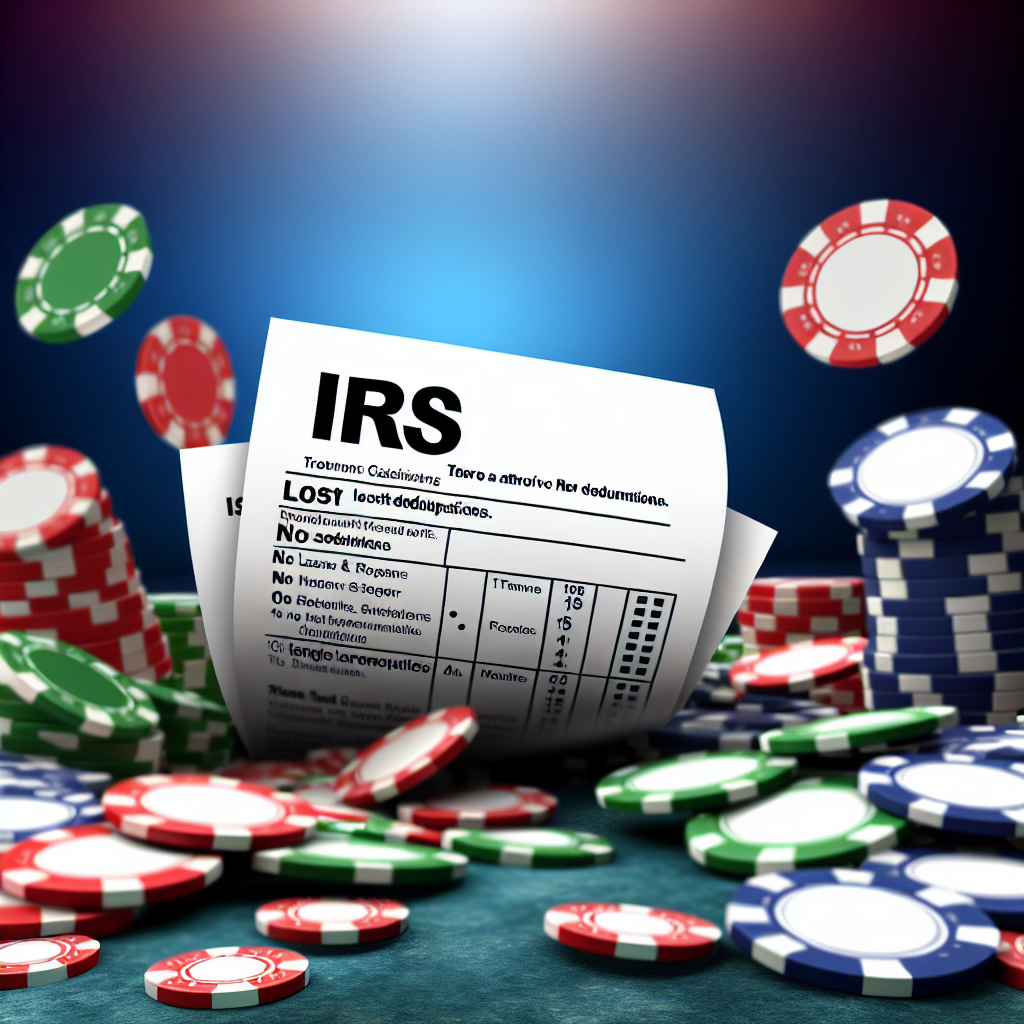
On July 4, 2025, President Trump signed into law the One Big Beautiful Bill Act, a sweeping piece of legislation with far-reaching tax implications (TFX, Jul 16, 2025).
Hidden within the larger bill is a significant change in how gambling losses are treated for tax purposes – one that could affect U.S. citizens, expats, and non-residents alike.
Starting January 1, 2026, the Act limits the deduction of gambling losses to 90% of winnings. Under the previous rule, taxpayers could deduct 100% of losses up to the amount of winnings. The new provision, inserted during Senate Finance Committee negotiations, is projected to raise an estimated $1.1 billion over 10 years, according to the Joint Committee on Taxation (TaxesForExpats).
Retention and Loyalty Levers in Lost Deductions New IRS Rules on Gambling Losses
The IRS Gambling Losses Rules reshape how casino operators strategize around player retention. With the reduction in deductible losses, casinos might need to reconsider their loyalty programs. Traditionally, these programs offered incentives that aligned closely with tax benefits, but now, with a tightened deduction cap, the allure of such incentives may wane. What will entice players to keep returning? For example, bespoke experiences and personalized rewards could become central to maintaining player loyalty. These measures could replace the more transactional appeal of tax-efficient losses, sketching a new era of engagement.
Player Behavior: Practical Takeaways for Lost Deductions New IRS Rules on Gambling Losses
With the IRS Gambling Losses Rules in place, player behavior is expected to shift. Gamblers may become more discerning, prioritizing games with higher win probabilities or seeking out casinos that offer attractive bonuses to offset the reduced tax benefits. This change might also see a rise in players meticulously tracking their wins and losses, understanding that every dollar counts more than ever. Does this mean the casual player will retreat in favor of the more calculated gambler? On balance, the industry may witness a nuanced transformation in player profiles, echoing the deeper financial implications at play.
Regulatory Contours Shaping Lost Deductions New IRS Rules on Gambling Losses
Globally, tax regulations around gambling vary significantly, and the US’s recent adjustment underscores a broader trend towards tighter fiscal oversight. In practice, this means casinos must navigate not just national but international regulatory environments. Understanding the implications of the IRS change helps illuminate these diverse global landscapes. For instance, while some regions may follow suit with similar limitations, others might maintain more generous tax environments to attract international gamblers. Such regulatory contours are pivotal in shaping strategic decisions for both operators and players alike. It’s a complex chessboard, where every move counts.
In short, the IRS Gambling Losses Rules introduce a recalibrated lens through which both casinos and players must view the gaming landscape. These changes demand fresh strategies and insights, reshaping the industry’s future. Explore deeper takes on IRS Gambling Losses Rules — subscribe to CasinoVVV’s briefings.
What are gambling losses?
Gambling losses refer to the money you lose while gambling, including bets placed in casinos, online platforms, or lotteries.
Can I deduct my gambling losses on my tax return?
Yes, but only if you itemize your deductions and report all of your gambling winnings.
What are the new IRS rules on gambling losses?
Until tax year 2025, you can deduct 100% of your losses (up to the amount of your winnings).
Starting January 1, 2026, under the One Big Beautiful Bill Act, deductions are capped at 90% of winnings.
➡ Example:
-
Winnings: $500,000
-
Losses: $500,000
-
Old rules (through 2025): Deduct full $500,000 → $0 taxable income.
-
New rules (from 2026): Deduct only $450,000 → $50,000 taxable income (“phantom income”).
Do I need to report my gambling winnings to the IRS?
Yes. All gambling winnings are considered taxable income and must be reported.
How do the new rules affect professional gamblers?
Professional gamblers can still deduct losses, but starting in 2026, they will face the 90% cap as well. This means more meticulous record-keeping and tighter profit margins.
Are there any limits to deducting gambling losses?
Yes. Even before the 2026 change, losses could only be deducted up to the amount of reported winnings. Starting in 2026, only 90% of those losses will count toward the deduction.
Read also: Luck Or Logic: How Gambling Differs From Investing • Gambling Companies In Forbes Global 2000 Top 1000
